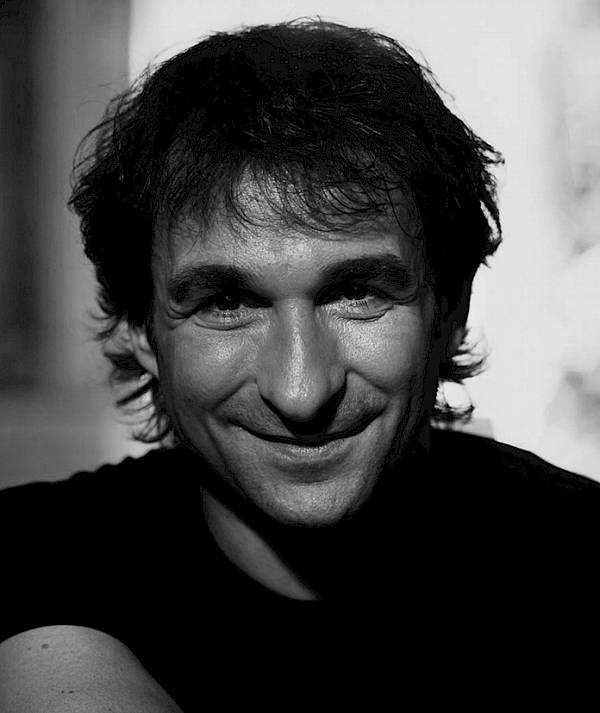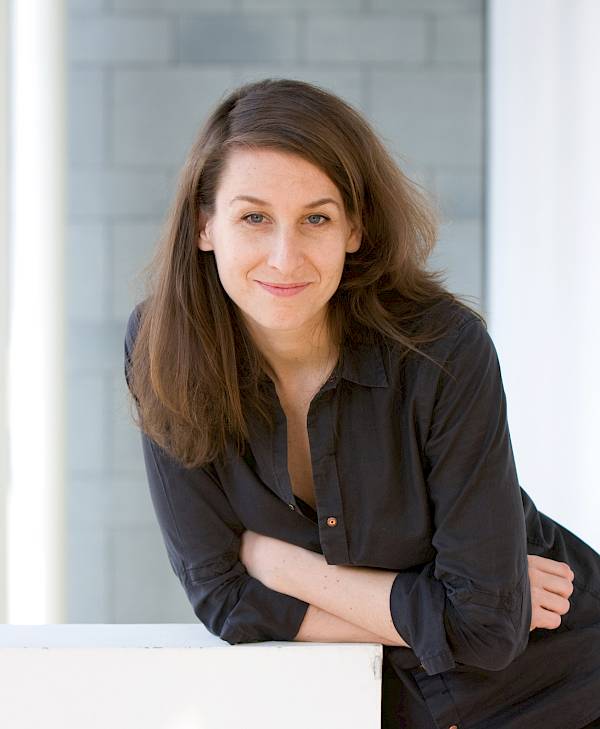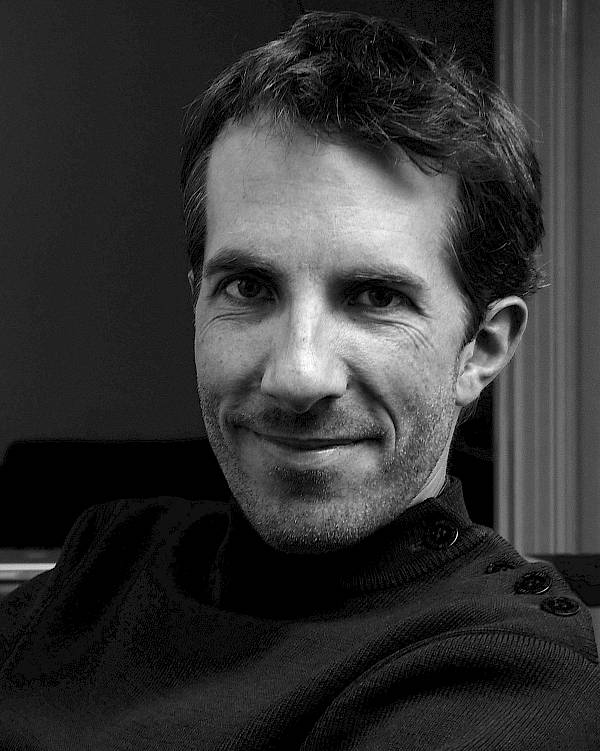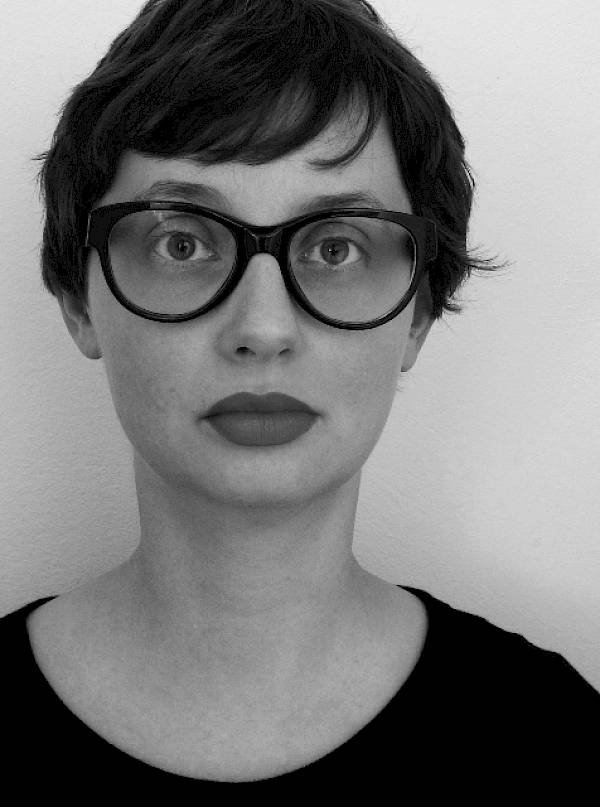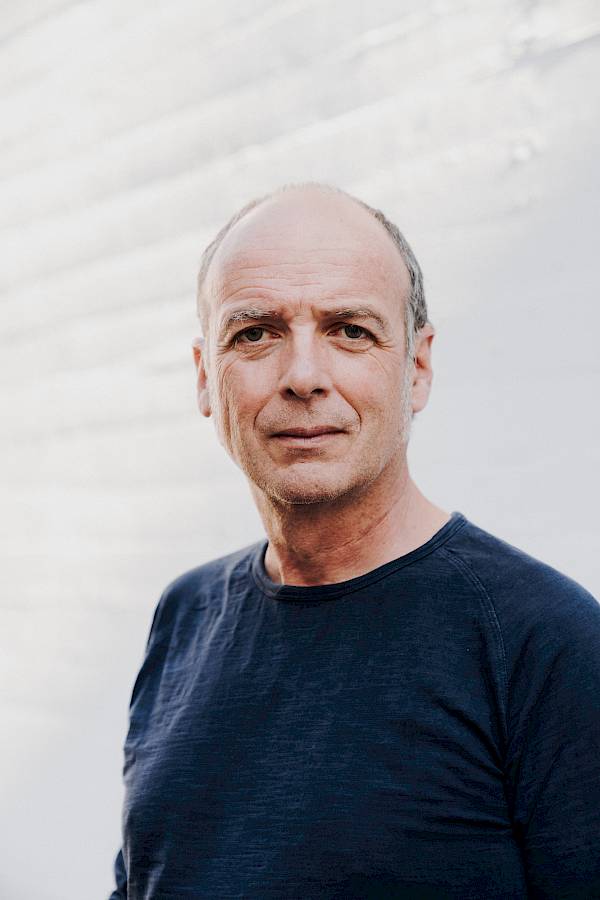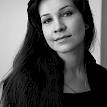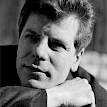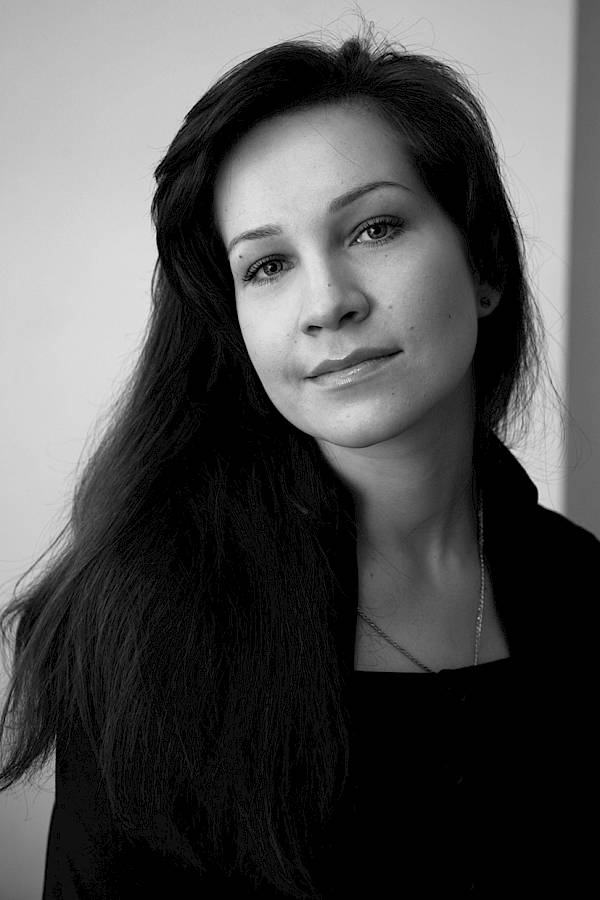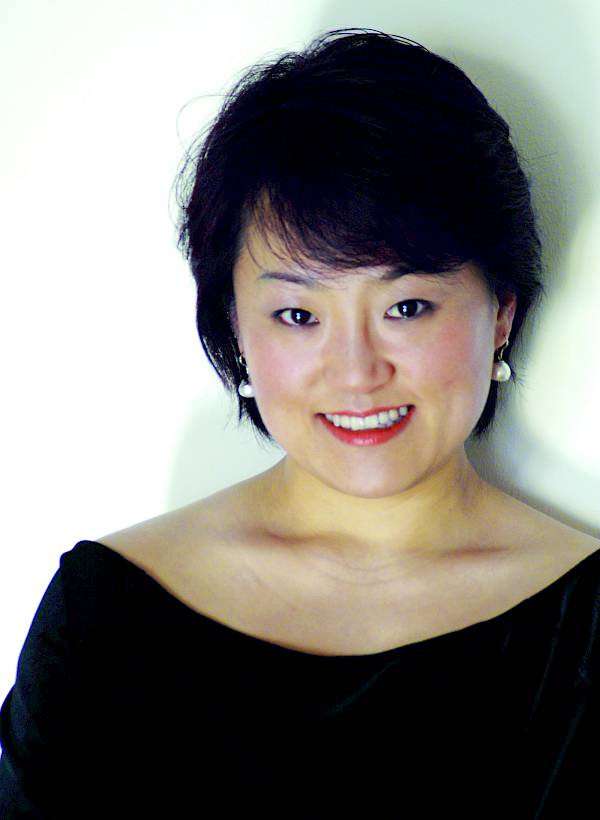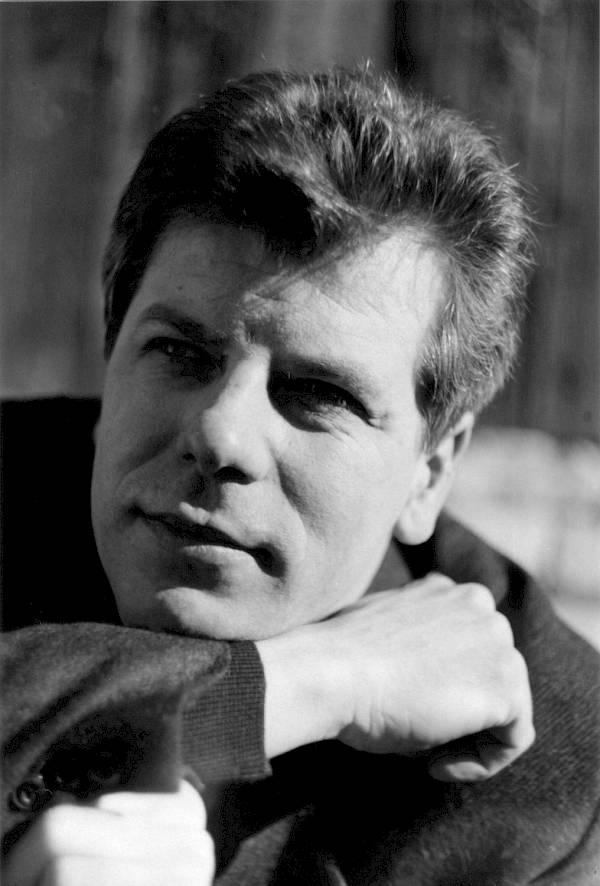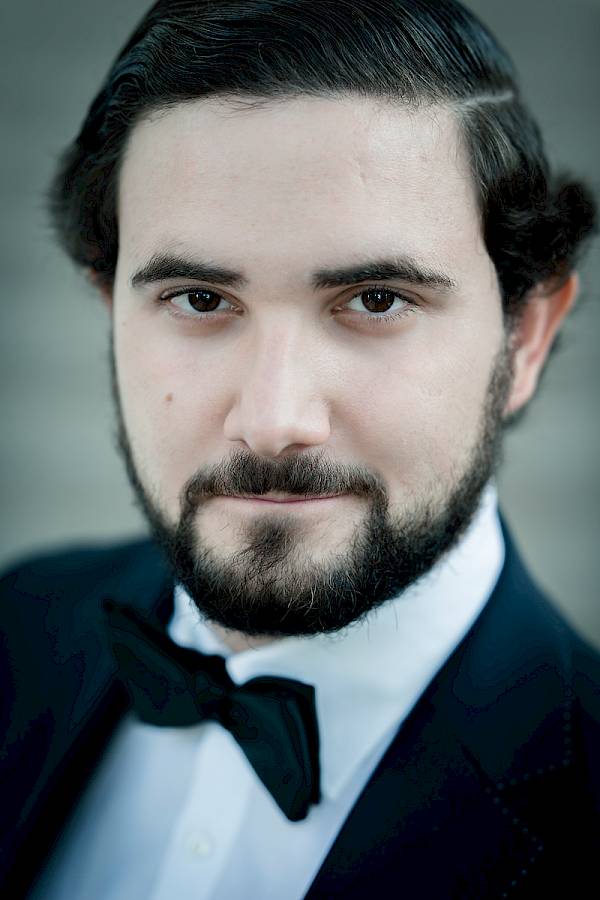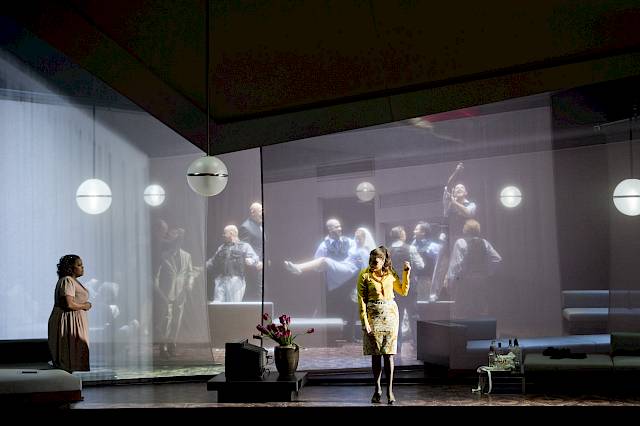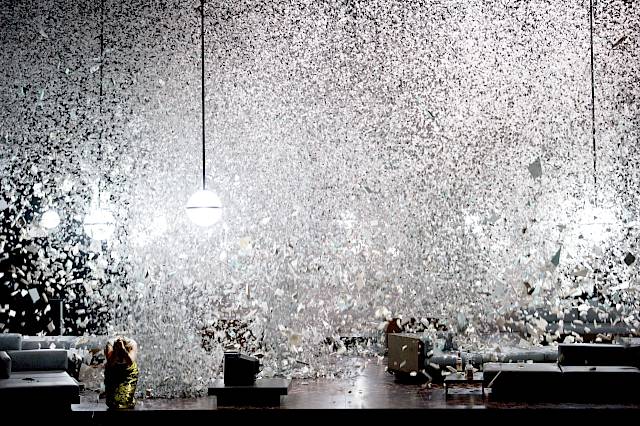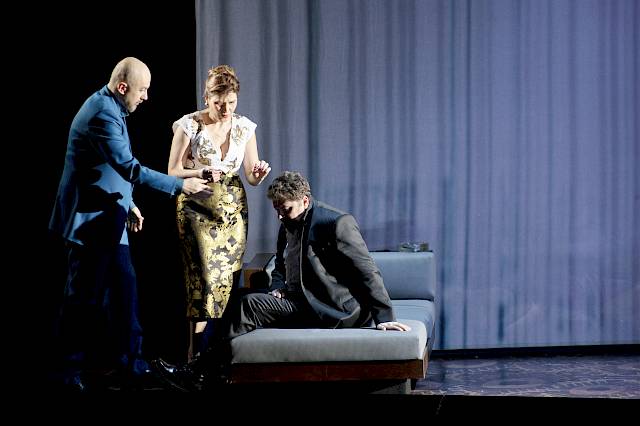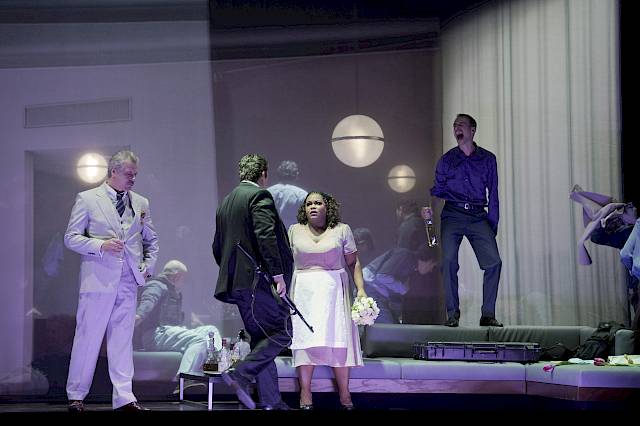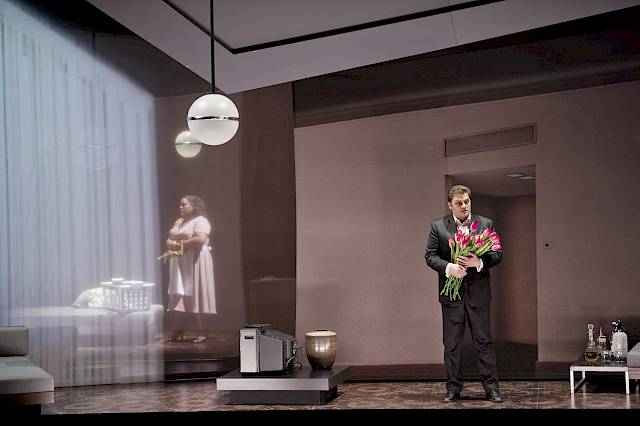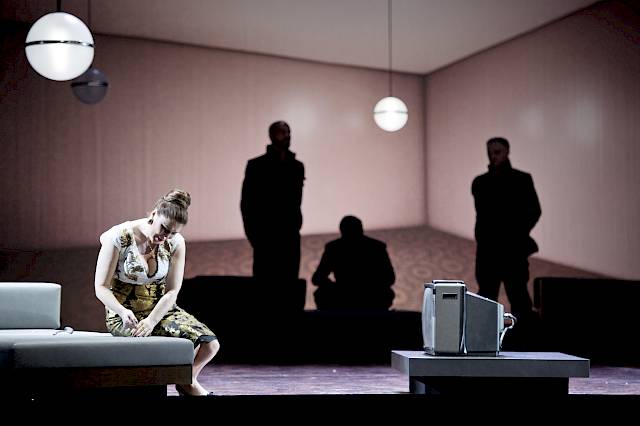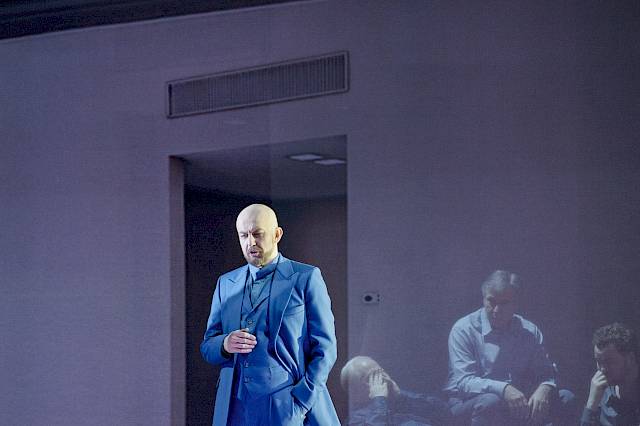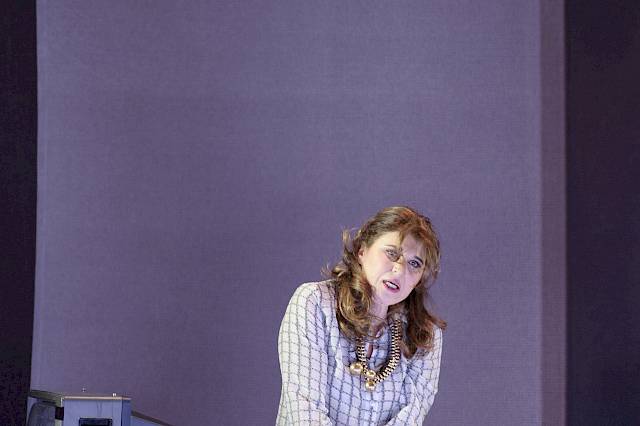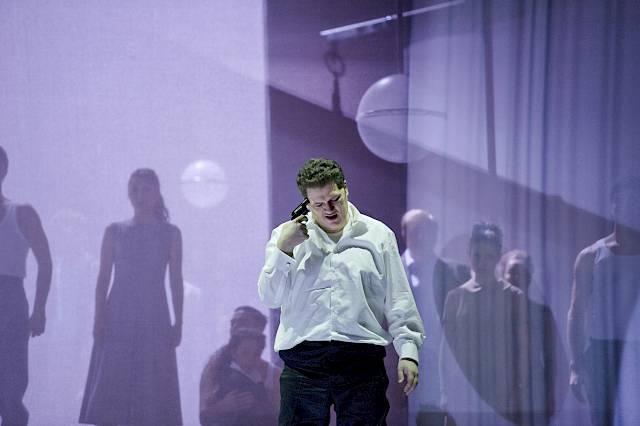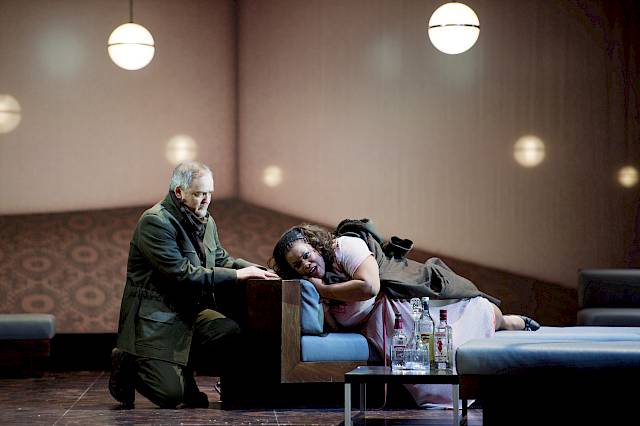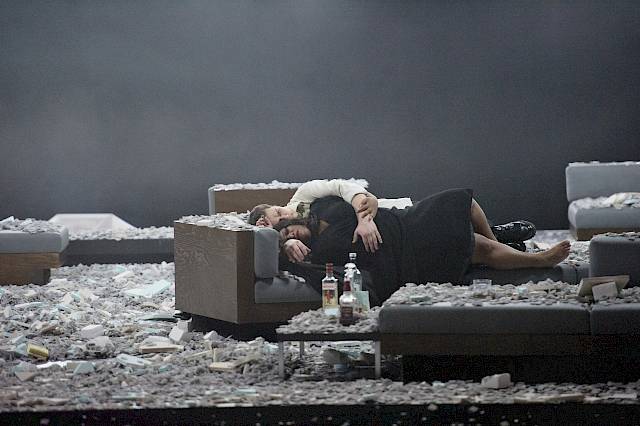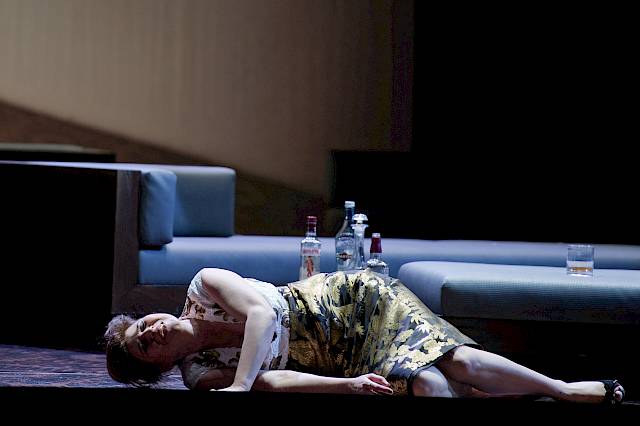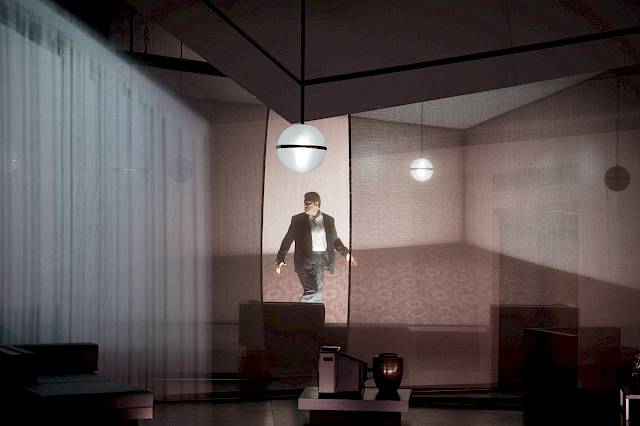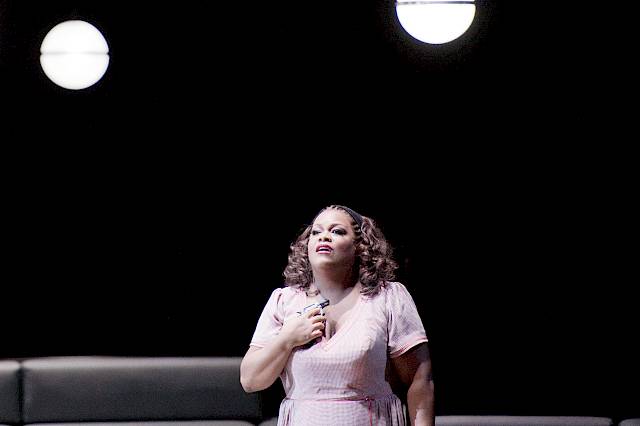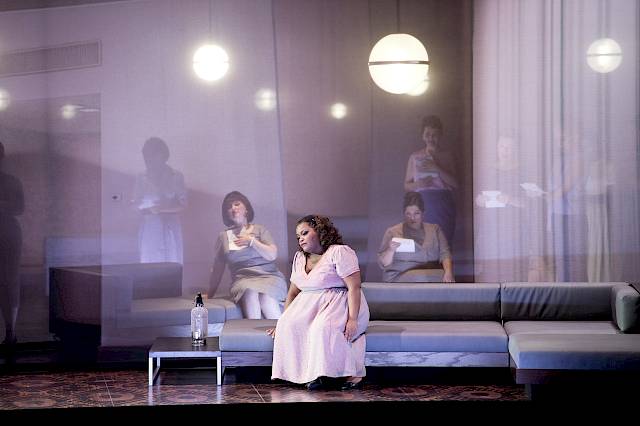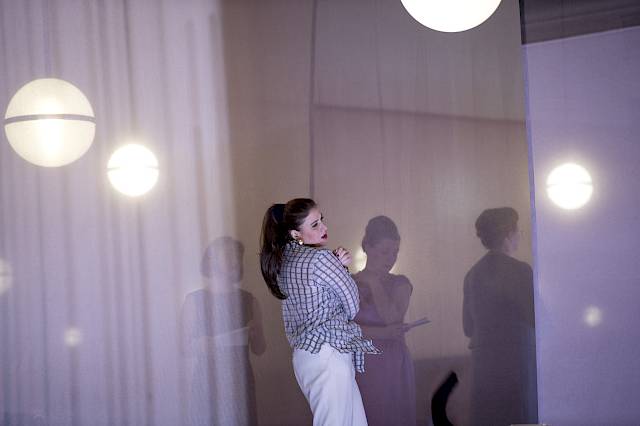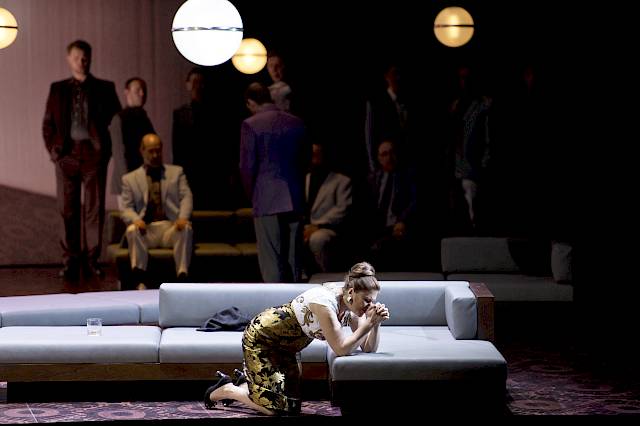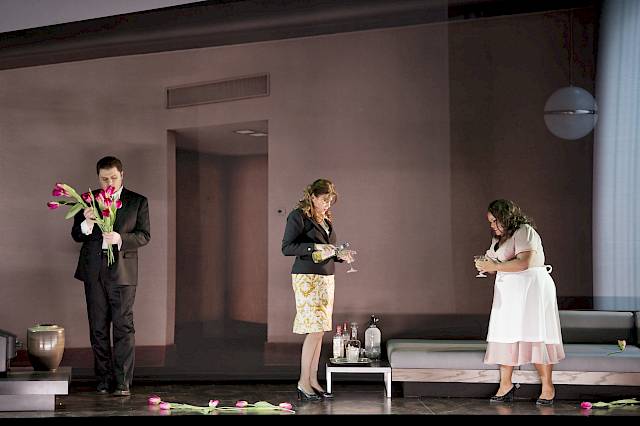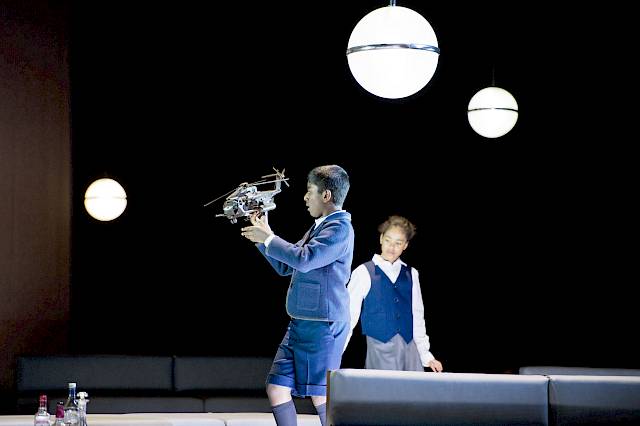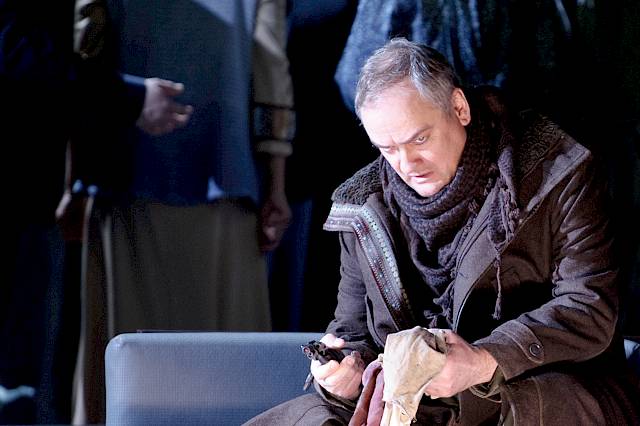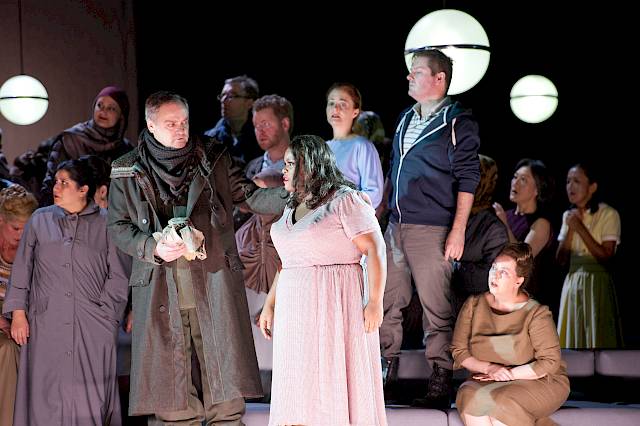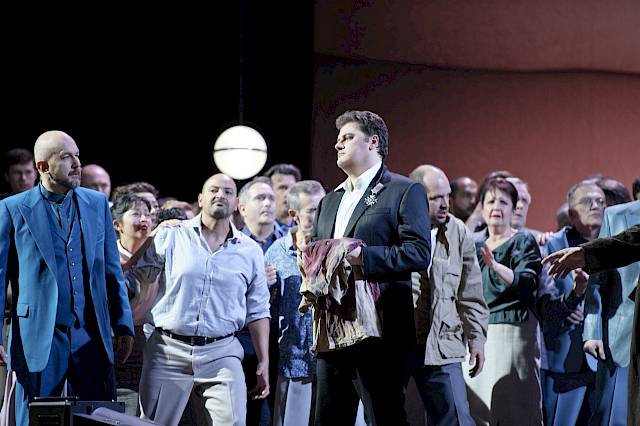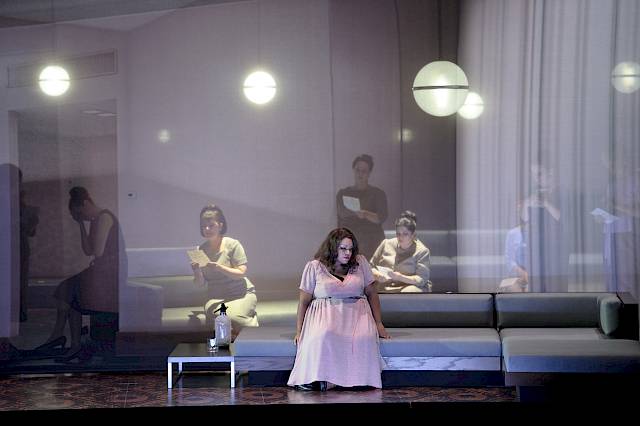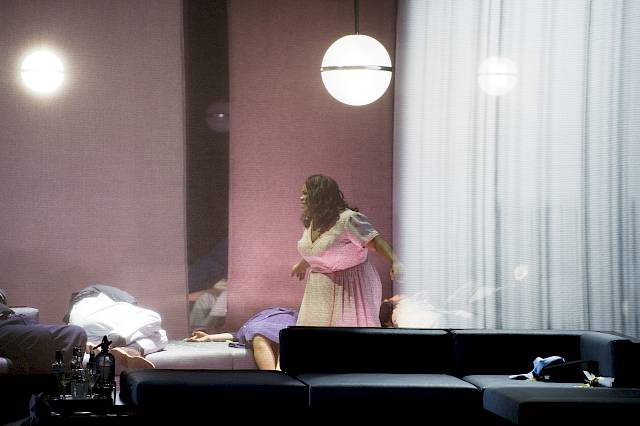Abstract
In 1870, at the height of his world fame, Giuseppe Verdi was commissioned to write his third-to-last opera, Aida, by the Egyptian Viceroy. However, the piece does not roll out the carpet for a display of ancient Egyptian splendour, but is about the demise of young people due to a social order of rigid power structures and ossified religious rituals. Aida tells the tale of an impossible love in time of war between the enslaved Ethiopian princess Aida, the Egyptian general Radamès, and Amneris, the Pharaoh’s daughter. The famous triumphal march, which is often misunderstood as decorative pageantry, is merely the visible side of Verdi’s most popular opera. Full of lyrical intimacy, it also features bewitching evocations of nature and longing. In her production, Tatjana Gürbaca focuses on the protagonists’ interior worlds, their dreams and aspirations. She removes the boundaries between external reality and internal, emotional reality, and shows the triumphal march, for example, as a series of traumatic images experienced by the ex-combatant Radamès. One of the most forceful impressions of the production is a moment of spectacular futility when debris crashes onto the stage, suddenly transforming it into an expanse of ruin in which Aida and Radamès sing their moving duet of love and death. Veronika Dzhioeva, one of the best Russian Verdi voices, will be giving her début at Zurich Opera House as Aida. The Italian tenor Stefano La Colla, who will sing Radamès, will also be heard in our theatre for the first time. Marco Armiliato, who has a great penchant for the Italian repertoire and is always a welcome guest in Zurich, will be at the rostrum of the Philharmonia Zurich.


